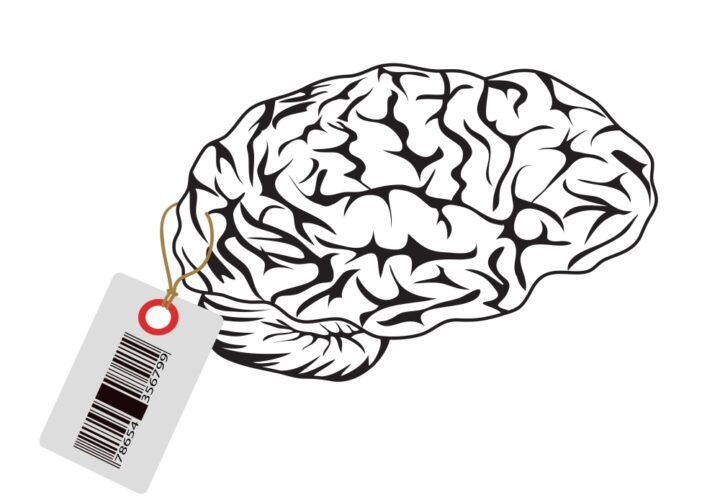While recent reports have found that Alzheimer's is "the most expensive disease in America," costing society more than a quarter of a trillion dollars, a new analysis suggests that Alzheimer's economic impact is even greater than current estimates.
While recent reports have found that Alzheimer’s is “the most expensive disease in America,” costing society more than a quarter of a trillion dollars, a new analysis suggests that Alzheimer’s economic impact is even greater than current estimates.
A team of experts from universities, research institutes, health care organizations and Alzheimer’s Research UK looked at the actual cost of Alzheimer’s and other types of dementia in a research report published yesterday in the Journal of Alzheimer’s Disease: “Tip of the Iceberg: Assessing the Global Socioeconomic Costs of Alzheimer’s Disease and Related Dementias and Strategic Implications for Stakeholders.”
They found that current estimates ignore socioeconomic costs like the price caregivers pay for health care, the impact of dementia on quality of life and other “hidden costs.” The team showed that previous measures only include the “tip of the iceberg” when assessing dementia’s financial impact on society and list additional measures that should be considered:
- People developing other health conditions, including anxiety or depression, after caring for someone with dementia
- Families being required to limit spending or use their savings to help their loved one
- Costs that come before a dementia diagnosis, including expensive diagnostic tests to rule out other conditions
“Dementia is a complex condition that often occurs with additional ‘co-morbid’ physical and mental health conditions. To calculate the true needs for people with dementia and the true cost, we must also consider key co-morbidities such as falls, fractures, frailty and the increased risk of infections as well as mental health conditions such as depression, agitation and psychosis,” said Professor Clive Ballard, Executive Dean at the University of Exeter Medical School. “These are huge issues in terms of both high cost and devastating impact on individuals, and they must be considered holistically.”
Current estimates indicate dementia’s economic cost is one trillion dollars worldwide. In this analysis, the team looked at previous studies measuring dementia’s cost and identified the following factors:
- Direct costs (e.g. the cost of health care and social care)
- Indirect costs (e.g. informal care offered by loved ones and limiting their ability to work full-time)
- Intangible costs (e.g. the impact of a dementia diagnosis on quality of life for patients and their caregivers)
However, most estimates only include direct and indirect costs. The team argued that hidden costs such as the cost of medications or diagnostic tests when patients develop other conditions as a result of a dementia diagnosis should also be considered. The analysis also found that relatives often need to use their savings to help a loved one with Alzheimer’s.
“Research offers our best hope for ending the fear, harm and heartbreak of dementia and transforming people’s lives,” said Hilary Evans, Chief Executive of Alzheimer’s Research UK.
Often, diseases that may lead to dementia are not diagnosed early enough or doctors misdiagnose dementia symptoms as another condition, leading to even more expenses before an official diagnosis.
“We found staggering inconsistencies between how costs of dementia are calculated across studies and our analysis strongly supports that current estimates fail to recognize the true costs of the diseases, such as Alzheimer’s, that cause dementia,” said Alireza Atri, MD, PhD, senior and corresponding author of the study and the director of the Banner Sun Health Research Institute in Arizona. “Some studies have estimated that out-of-pocket expenses for people with dementia are up to one third of their household wealth in the final five years of their life, and that caregivers have healthcare costs that are twice as high as non-caregivers.”
In the future, the team would like to create research action plans that measure dementia’s impact on society, Atri said. They hope to inform local and national governments, as well as organizations like Alzheimer’s Disease International and WHO about their research so that they can work together to create policies that acknowledge dementia is a “global health priority,” then provide better treatment, prevention and care options.
“This is not a ‘their problem,’ it is an ‘our problem’—we are all stakeholders, the bell tolls for all of us, and we have to act now—not in isolation but in a coordinated, strategic, systematic and resolute way, locally and globally; we can’t afford not to,” she said.






Great article! Thank you for shining a light on this very important issue. Indeed we all need to work together to create a dialog that leads to improving policies around this public health crisis. – Daphne Glover Ferrier, Producer of SPENT The Hidden Cost of Dementia